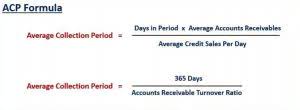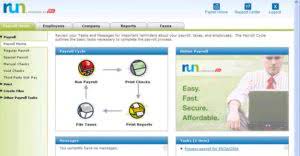
As conduits of financial information, these adept professionals serve as a bridge between raw data and informed decisions. By inputting key criteria, you can quickly create a job posting that resonates with the right candidates. The tool ensures that no critical details are missed, enabling you to communicate expectations, culture, and the unique benefits of joining your team effectively. Experience is an essential qualification to consider when hiring a Full Charge Bookkeeper. An experienced bookkeeper is familiar with industry best practices and can bring valuable insight to your business practices. As a full charge bookkeeper, you can expect to work in a professional office environment that is conducive to performing accounting tasks efficiently.
B. Decision-making and Reporting:
- We are looking for a detail-oriented Full Charge Bookkeeper who will take overall responsibility for managing all financial transactions and maintaining accurate records for our company.
- An experienced bookkeeper is familiar with industry best practices and can bring valuable insight to your business practices.
- They also should have several years of bookkeeping experience and a thorough understanding of accounting principles and financial reporting.
- The dynamics of financial management evolve, and with each shift, the demand for proficient individuals who can manage, develop, and protect our financial records escalates.
They must be knowledgeable about deductions, credits, and exemptions to help businesses minimize their tax burden while staying compliant with the law. Another essential qualification for a full charge bookkeeper is familiarity with tax laws and regulations. Bookkeepers need to understand the tax implications of various financial transactions and ensure compliance with applicable what is a full charge bookkeeper tax laws. One of the key qualifications for a full charge bookkeeper is a deep understanding of Generally Accepted Accounting Principles (GAAP). GAAP serves as the standard framework for financial accounting and reporting in the United States. In-depth knowledge of accounting principles, financial reporting, and general ledger structure is crucial in this role.
How Much to Pay a Full Charge Bookkeeper when Hiring
Creating an effective Full Charge Bookkeeper job posting requires a clear and concise description of the job responsibilities, qualifications, and requirements. By following these tips, you can attract the most qualified candidates for the position and ensure that your organization has the best bookkeeping talent. You should also list any other specific requirements such as proficiency with Microsoft Excel or experience in tax preparation. This practical experience can be invaluable when entering the workforce, as it provides individuals with a chance to apply their knowledge and skills in a professional setting. This involves collaborating with management to develop realistic budgets, monitoring actual performance against budgeted targets, and providing financial insights to support decision-making. By actively participating in the budgeting and forecasting process, you contribute to the company’s financial planning and help ensure financial goals are met.
How does a Full Charge Bookkeeper ensure accuracy in financial records?
So even if you have accounting software, odds are, you still need a bookkeeper to manage the software, enter data, file reports, identify errors and keep everything current. One possible career advancement opportunity for a full charge bookkeeper is to become a senior bookkeeper or an accounting manager. In these roles, you would be responsible for overseeing a team of bookkeepers and ensuring that all financial activities are accurately recorded and reported.
Responsibilities

Full-charge bookkeepers’ educational background and training requirements can vary depending on the business and the organization’s specific needs. While a formal degree in accounting or finance can be positive, becoming a full-charge bookkeeper isn’t always a strict requirement. Full-charge bookkeepers gather their skills through a combination of education, on-the-job training, and professional certifications. Full-charge bookkeepers ensure compliance with financial regulations, tax legal guidelines, and reporting requirements.
Requirements And Skills:

With the availability of these resources, you can easily access financial records, analyze data, and generate reports. Bookkeepers are responsible for performing calculations, reconciling accounts, and ensuring accurate financial records. A solid understanding of mathematical concepts and the ability to apply them accurately is crucial in this role. Mathematical aptitude allows bookkeepers to analyze financial data, perform calculations efficiently, and spot any discrepancies or errors that may arise.

Unlock your career potential

They must stay updated with evolving financial policies to ensure correct and timely financial reporting. While an in-house bookkeeper might also handle compliance tasks, their scope of duties may be more limited. A full-charge bookkeeper possesses a broader skill set and assumes more extensive responsibilities than an in-house. This includes ensuring accurate and timely processing of employee salaries, benefits, and deductions. You also handle payroll tax calculations, ensure compliance with payroll regulations, and maintain payroll records.
We’re looking for a Full Charge Bookkeeper to manage all aspects of our financial records, from Accounts Receivable and Accounts Payable to Payroll and General Ledger. You will be the one to ensure that our financial records are accurate and up-to-date, and that our books are in compliance with all applicable laws and regulations. https://www.bookstime.com/ After completing your education, you can seek an internship and get on-the-job training to become a bookkeeper. However, it helps to have a two- or four-year degree in accounting, finance or related discipline. Below is a sample bookkeeper job description that you can customize to meet the needs of your business.
- As a full charge bookkeeper, you can expect to work in a professional office environment that is conducive to performing accounting tasks efficiently.
- In a Bachelor’s Degree program, students will delve deeper into topics such as financial analysis, cost accounting, auditing, and advanced financial reporting.
- A Full Charge Bookkeeper must have exceptional analytical and communication skills, attention to detail, and be well-versed in accounting principles and software.
- It sheds light on the soft skills and company culture fit that make your opening unique.
- With the availability of these resources, you can easily access financial records, analyze data, and generate reports.
They ensure that all financial data is accurate and up-to-date, which allows for informed decision-making by management. Their work supports the preparation of tax returns and provides a clear picture of the company’s financial health. As a full charge bookkeeper, you play a crucial role in managing the financial operations of a company. Time management skills are crucial for a full charge bookkeeper to handle multiple responsibilities efficiently. Bookkeepers are often tasked with managing various financial tasks simultaneously, such as processing invoices, reconciling bank statements, and preparing financial reports.
